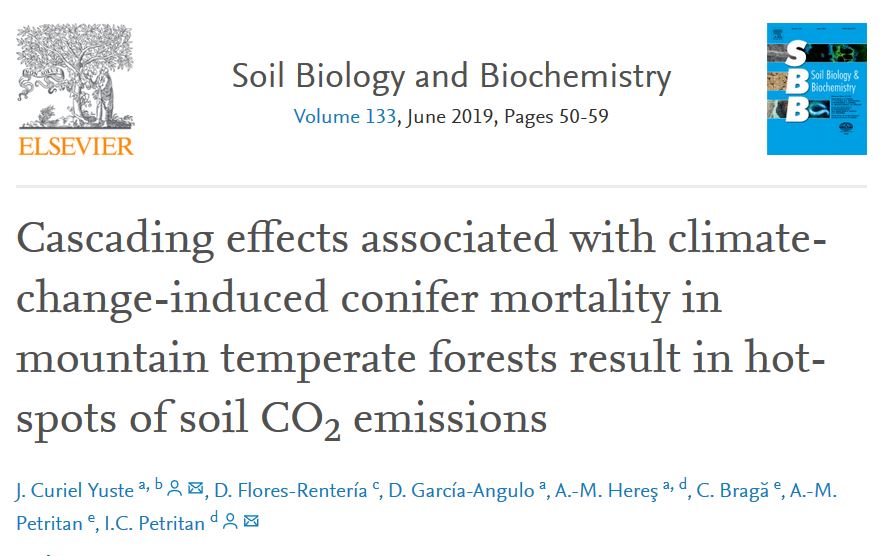March 22, 2019
Published by BC3Research at March 22, 2019
Categories
I will introduce the framework of leverage points, i.e. places to intervene in a complex system that bring transformative change, to identify interventions that can promote sustainable management of nature’s contributions to people. I will specifically focus on the so called deep leverage points, which have exceptional potential to yield truly transformative change towards sustainability.
Do you like it?
April 2, 2019
Published by BC3Research Jorge Curiel at April 2, 2019
Categories
Woody encroachment is a widespread phenomenon resulting from the abandonment of mountain agricultural and pastoral practices during the last century. As a result, forests have expanded, increasing biomass and necromass carbon (C) pools. However, the impact on soil organic carbon (SOC) is less clear. The main aim of this study was to investigate the effect of woody encroachment on SOC stocks and ecosystem C pools in six chronosequences located along the Italian peninsula, three in the Alps and three in the Apennines.
Do you like it?
April 3, 2019
Published by BC3Research Jorge Curiel Daniel Garcia at April 3, 2019
Categories
Climate change-induced tree mortality is occurring worldwide, at increasingly larger scales and with increasing frequency. How climate change-induced tree mortality could affect the ecology and carbon (C) sink capacity of soils remains unknown. This study investigated regional-scale drought-induced tree mortality, based on events that occurred after a very dry year (2012) in the Carpathians mountain range (Romania), which caused mortality in three common conifer species: Scots pine, Black pine, and Silver fir.
Do you like it?
April 3, 2019
Published by BC3Research Stefano Balbi Ferdinando Villa at April 3, 2019
Categories
Enhancing the governance of social-ecological systems for more equitable and sustainable development is hindered by inadequate knowledge about how different social groups and communities rely on natural resources. We used openly accessible national survey data to develop a metric of overall dependence on natural resources. These data contain information about households' sources of water, energy, building materials and food.
Do you like it?




